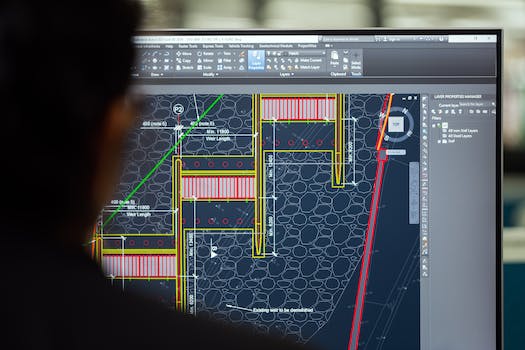-
Table of Contents
“Unleashing Innovation, One Line of Code at a Time.”
Introduction
The progression of software engineering refers to the evolution and development of the field of software engineering over time. This includes advancements in methodologies, tools, and practices used in the design, development, testing, and maintenance of software systems. As technology has advanced, software engineering has become increasingly important in various industries, leading to the emergence of new approaches and techniques to meet the growing demands of software development.
The Evolution of Software Engineering Methodologies
The field of software engineering has come a long way since its inception. Over the years, various methodologies have been developed to improve the efficiency and effectiveness of software development processes. These methodologies have evolved in response to the changing needs and demands of the industry. In this article, we will explore the progression of software engineering methodologies and how they have shaped the way software is developed today.
One of the earliest methodologies in software engineering was the Waterfall model. This model follows a linear and sequential approach, where each phase of the software development process is completed before moving on to the next. While this approach provided a structured framework for development, it had its limitations. The Waterfall model did not allow for flexibility or adaptability, making it difficult to accommodate changes or feedback during the development process.
As the industry grew and software projects became more complex, a new methodology called the Agile approach emerged. Agile methodologies, such as Scrum and Kanban, focused on iterative and incremental development. This allowed for more flexibility and collaboration among team members. The Agile approach emphasized the importance of continuous feedback and adaptation, enabling developers to respond to changing requirements and deliver high-quality software in a timely manner.
Another significant development in software engineering methodologies was the introduction of DevOps. DevOps is a combination of development and operations, aiming to bridge the gap between software development and IT operations. This methodology emphasizes collaboration, automation, and continuous delivery. By integrating development and operations teams, DevOps enables faster and more efficient software development, deployment, and maintenance.
In recent years, there has been a growing interest in Lean software development. Inspired by Lean manufacturing principles, this methodology focuses on eliminating waste and maximizing value. Lean software development emphasizes the importance of delivering value to customers quickly and continuously improving processes. By reducing unnecessary activities and streamlining workflows, Lean methodologies aim to increase efficiency and productivity in software development.
In addition to these methodologies, there are also various hybrid approaches that combine elements from different methodologies. For example, the Spiral model combines the iterative nature of Agile methodologies with the structured approach of the Waterfall model. This allows for flexibility and adaptability while still providing a clear framework for development.
The progression of software engineering methodologies has been driven by the need for more efficient and effective software development processes. Each methodology has its strengths and weaknesses, and the choice of methodology depends on the specific needs and requirements of the project. However, the common thread among all these methodologies is the focus on collaboration, adaptability, and continuous improvement.
In conclusion, the evolution of software engineering methodologies has revolutionized the way software is developed. From the linear and sequential approach of the Waterfall model to the iterative and collaborative nature of Agile methodologies, software development has become more efficient and adaptable. The introduction of DevOps and Lean methodologies further enhanced the speed and quality of software development. As the industry continues to evolve, it is likely that new methodologies will emerge to meet the ever-changing demands of software development.
The Impact of Agile Development on Software Engineering

The field of software engineering has undergone significant changes over the years, with new methodologies and approaches constantly emerging. One such approach that has had a profound impact on software engineering is Agile Development. Agile Development is a set of principles and practices that prioritize flexibility, collaboration, and iterative development. This approach has revolutionized the way software is developed, leading to increased efficiency and improved outcomes.
One of the key ways in which Agile Development has impacted software engineering is through its emphasis on collaboration. In traditional software development methodologies, such as the Waterfall model, development teams worked in silos, with little interaction between different roles. This often led to miscommunication, delays, and a lack of alignment between the development team and the stakeholders. Agile Development, on the other hand, promotes cross-functional teams that work closely together throughout the development process. This collaboration allows for better communication, faster decision-making, and a shared understanding of project goals. By breaking down barriers between different roles, Agile Development fosters a more cohesive and efficient development process.
Another significant impact of Agile Development on software engineering is its focus on iterative development. In traditional methodologies, software development followed a linear process, with each phase completed before moving on to the next. This approach often resulted in lengthy development cycles and limited opportunities for feedback and adaptation. Agile Development, however, breaks the development process into smaller, manageable iterations called sprints. Each sprint focuses on delivering a working product increment, allowing for continuous feedback and improvement. This iterative approach enables software engineers to respond quickly to changing requirements and deliver value to stakeholders more frequently. By embracing change and prioritizing adaptability, Agile Development has transformed the way software is developed.
Furthermore, Agile Development has also had a significant impact on the role of the customer or end-user in the software development process. In traditional methodologies, the customer’s involvement was limited to providing initial requirements and reviewing the final product. This often resulted in a disconnect between the development team and the customer, leading to products that did not fully meet the customer’s needs. Agile Development, however, places a strong emphasis on customer collaboration and involvement throughout the development process. Customers are actively engaged in defining requirements, providing feedback, and prioritizing features. This close collaboration ensures that the final product aligns with the customer’s expectations and delivers maximum value. By involving the customer as a key stakeholder, Agile Development ensures that software engineering efforts are focused on meeting real-world needs.
In conclusion, Agile Development has had a profound impact on software engineering. Its emphasis on collaboration, iterative development, and customer involvement has transformed the way software is developed. By breaking down silos, promoting adaptability, and involving customers throughout the process, Agile Development has improved efficiency, communication, and outcomes in software engineering projects. As the field of software engineering continues to evolve, it is clear that Agile Development will remain a key driver of progress and innovation.
Emerging Trends in Software Engineering
The field of software engineering has seen significant advancements and changes over the years. As technology continues to evolve, so does the way software is developed and maintained. In this article, we will explore some of the emerging trends in software engineering and how they are shaping the future of the industry.
One of the most notable trends in software engineering is the shift towards agile methodologies. Agile development focuses on iterative and incremental development, allowing for more flexibility and adaptability in the software development process. This approach emphasizes collaboration, frequent communication, and quick response to changes. Agile methodologies have gained popularity due to their ability to deliver high-quality software in a shorter time frame.
Another emerging trend in software engineering is the rise of DevOps. DevOps is a combination of development and operations, aiming to bridge the gap between software development and IT operations. This approach emphasizes automation, collaboration, and continuous integration and delivery. By integrating development and operations teams, organizations can streamline their software development process and improve overall efficiency.
Cloud computing has also had a significant impact on software engineering. With the advent of cloud platforms, developers can now build, deploy, and scale applications more easily and cost-effectively. Cloud computing offers benefits such as scalability, flexibility, and reduced infrastructure costs. As a result, many organizations are moving their software development and deployment to the cloud, enabling them to focus more on innovation and less on infrastructure management.
Artificial intelligence (AI) and machine learning (ML) are also transforming the field of software engineering. AI and ML technologies are being used to automate various aspects of the software development lifecycle, such as code generation, testing, and bug detection. These technologies can analyze large amounts of data and make predictions or recommendations, helping developers improve the quality and efficiency of their software.
Security is another area that has become increasingly important in software engineering. With the rise of cyber threats and data breaches, organizations are placing a greater emphasis on building secure software. Secure coding practices, vulnerability testing, and threat modeling are becoming integral parts of the software development process. Additionally, the adoption of blockchain technology is also gaining traction in software engineering, as it offers enhanced security and transparency.
The Internet of Things (IoT) is yet another emerging trend in software engineering. IoT refers to the network of interconnected devices that can communicate and exchange data with each other. This technology has opened up new possibilities for software development, as it allows for the creation of smart and connected applications. From smart homes to industrial automation, IoT is revolutionizing various industries and driving the need for innovative software solutions.
In conclusion, software engineering is a dynamic field that continues to evolve with the advancements in technology. Agile methodologies, DevOps, cloud computing, AI and ML, security, and IoT are some of the emerging trends that are shaping the future of software engineering. As organizations strive to deliver high-quality software in a rapidly changing environment, it is crucial for software engineers to stay updated with these trends and adapt their practices accordingly. By embracing these emerging trends, software engineers can drive innovation, improve efficiency, and deliver value to their organizations and end-users.
Q&A
1. What is software engineering?
Software engineering is the discipline that involves designing, developing, testing, and maintaining software systems.
2. How has software engineering progressed over time?
Software engineering has evolved significantly over time, with advancements in methodologies, tools, and technologies. It has shifted from a focus on individual programming to a more collaborative and systematic approach, incorporating agile methodologies, DevOps practices, and continuous integration and delivery.
3. What are some key challenges in the progression of software engineering?
Some key challenges in the progression of software engineering include managing complexity, ensuring software quality, addressing security concerns, adapting to changing technologies, and meeting evolving customer expectations.
Conclusion
In conclusion, the field of software engineering has witnessed significant progression over the years. From its early days of ad hoc programming to the establishment of structured methodologies and the adoption of agile practices, software engineering has evolved to meet the growing demands of the industry. The introduction of new technologies, such as cloud computing and artificial intelligence, has further propelled the field forward. Additionally, the emphasis on collaboration, continuous improvement, and user-centric design has transformed software engineering into a more holistic and customer-focused discipline. As software continues to play an increasingly vital role in various industries, the progression of software engineering is expected to continue, driving innovation and shaping the future of technology.

